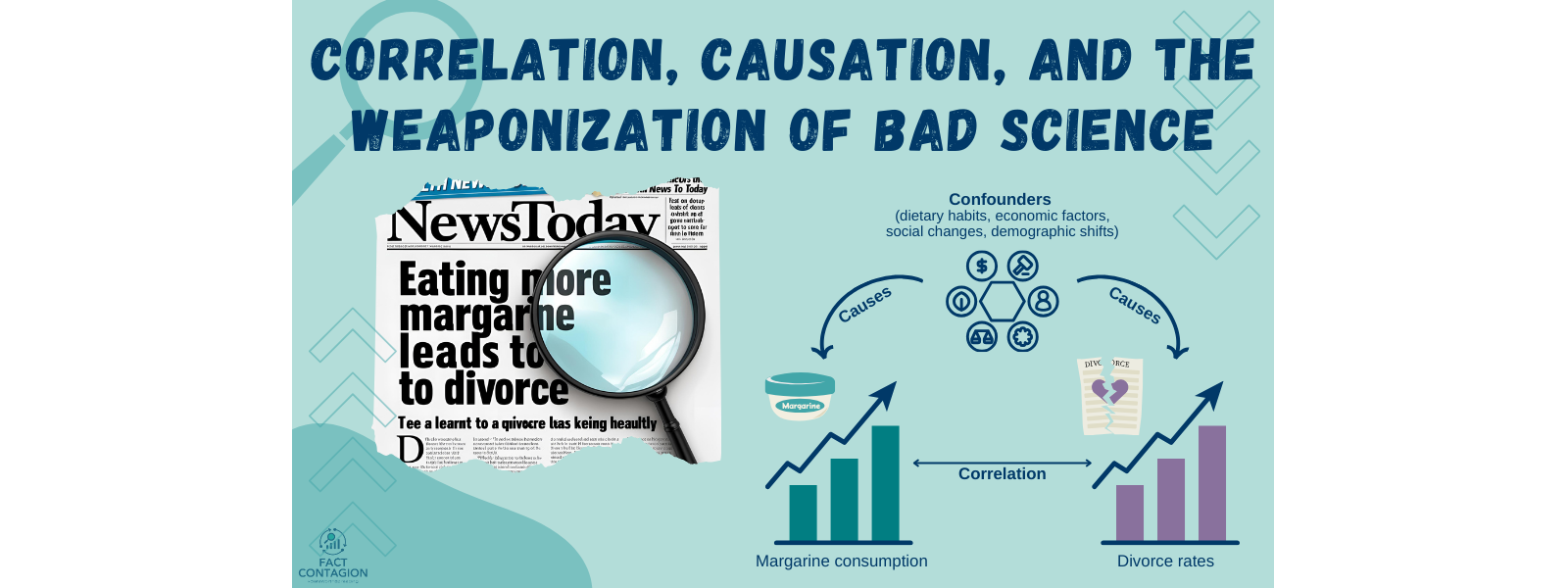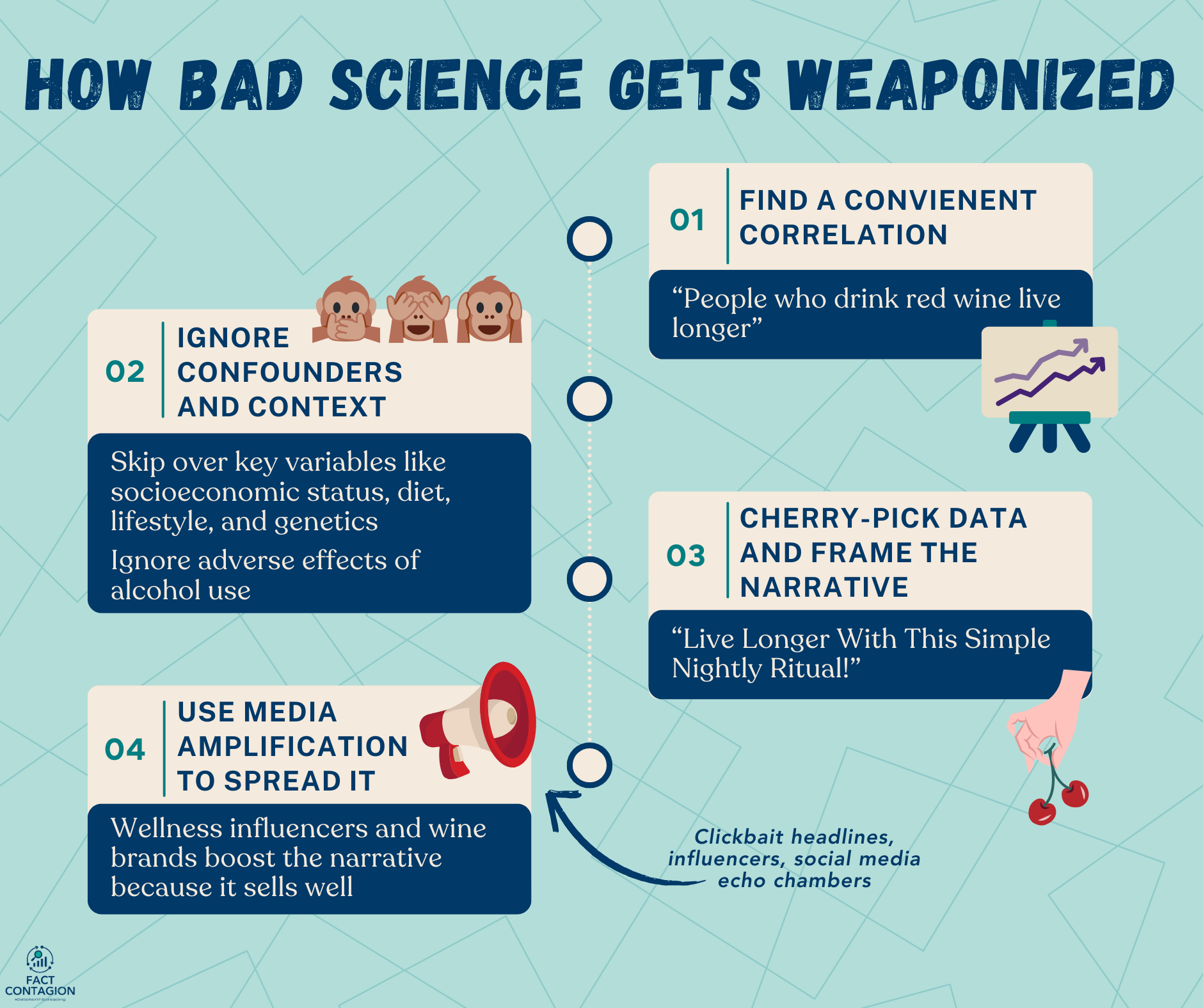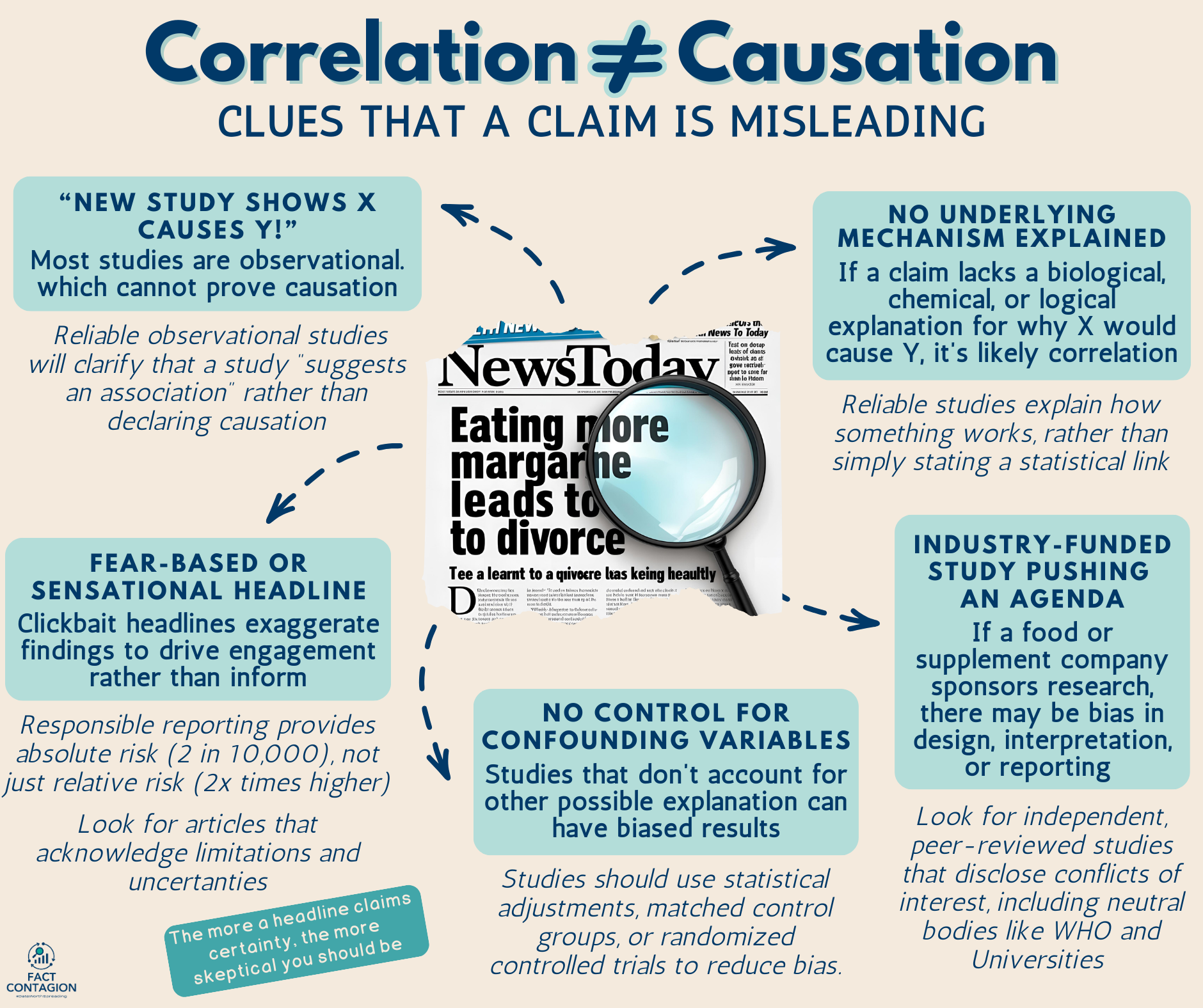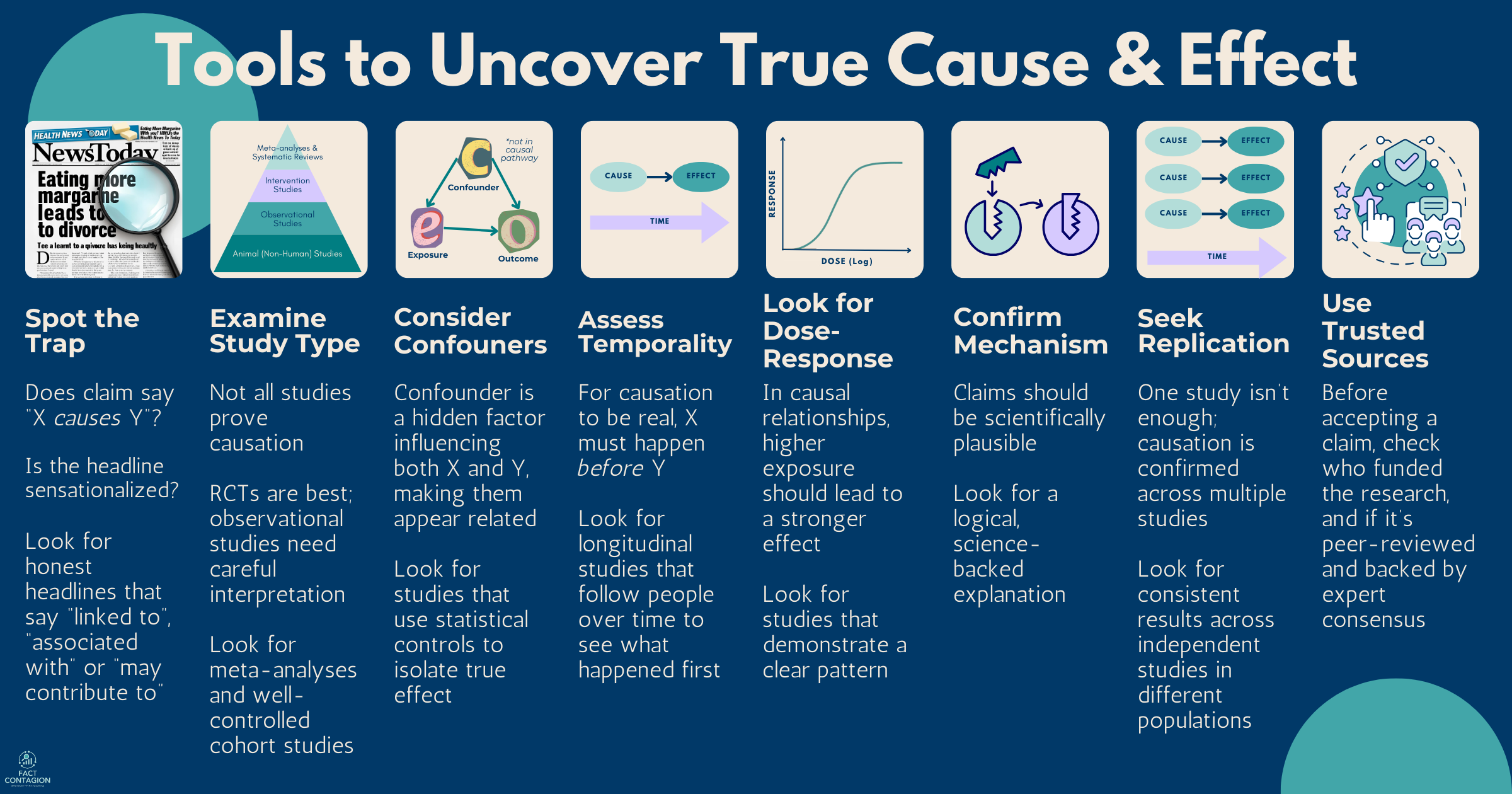Correlation, Causation, and the Weaponization of Bad Science

What if I told you that eating more margarine means you might be headed for divorce?
Maybe it sounds crazy. But there’s actually a strong correlation between per capita margarine consumption and divorce rates.
This graph looks quite compelling. As margarine consumption decreased over time, so did divorce rates. A near perfect match! 🤯 Margarine was secretly ruining marriages.
Not so fast… this is a classic example of correlation without causation. There’s zero logical, biological, or social mechanism by which consuming more margarine would melt away marriages like margarine on a hot skillet.
So what’s really happening? Pure coincidence. And the ability to recognize this distinction is critical.
Correlation (the relationship between two variables) versus causation (one variable directly affecting the other) is one of the most misused concepts in public health, politics, and media. Misinformation peddlers deliberately exploit these misunderstandings to sell products, push ideologies, or discredit science.
How Bad Science Gets Weaponized
Industries, media, and health influencers will conflate correlation and causation to:
- Sell you products (and thus profit off their misinformation) like detox teas, supplements, and pseudoscientific diets
- Discredit science such as the anti-vaccine movement, climate change denial, and the COVID-19 hoaxes
- Influence policy via industry-funded biased studies (eg, tobacco, sugar, alcohol)
Here’s the formula:

Misinformation thrives in this misunderstanding
Bad actors can mislead the audience into thinking that a study proves a direct cause-and-effect relationship, when in fact, it only identifies associations that require further research to understand underlying mechanisms.
Some of the most significant manipulations in recent history:
- Tobacco Industry's "Doubt" tactic that funded research on other correlations for lung cancer (eg, air pollution, genetics) to confuse the public and suggest multiple things were causing lung cancer.
- Big Sugar’s vilification of fat in the 1960s by funding research to blame dietary fat for heart disease and downplay sugar’s role. For decades, low-fat diets were mainstream while sugar-heavy processed foods thrived.
- The Anti-Vaccine movement’s cherry-picked data linking MMR vaccines to autism was based on correlation not causation (using Andrew Wakefield’s fraudulent study). Fear preyed on parental instincts as parents saw autism diagnoses increase around the same age kids receive vaccines, and they assumed causation.
The Media’s Role in Propagating Correlation vs. Causation Errors
With the endless stream of health information flowing through our electronic devices, it can be easy to fall for click-bait headlines that lack nuance. Even if unintentional, these stories can distort scientific findings and mislead the public. Sensationalized reporting drives engagement, but it can also reinforce false narratives that persist even after debunked.
For example, the headline claiming "Vegan meats linked to heart disease, early death" as reported by the New York Post and other outlets was proven to be misleading.
This Food & Wine article: "A New Study Finds That the Only Thing More Harmful Than Added Sugar in Drinks Is Not Consuming Any Sugar at All". While the study did suggest this association, it was based on self-reported observational data, which cannot prove that avoiding sugar directly harms health. Other factors, such as lifestyle, overall diet, and metabolic health, likely influenced the observed effect. The claim that consuming no sugar at all is more harmful than consuming some sugar mirrors the "teetotaler effect" seen in alcohol research, where studies suggest that moderate drinkers are healthier than non-drinkers. However, this is often due to confounding factors, not a causal relationship. For example, people who stop drinking entirely are likely to do so due to underlying health issues.
Understanding the difference between correlation and causation is critical for making informed decisions.
Defining our terms
Correlation: The degree to which two variables move in coordination with one another. Two variables can move together either positively (both increase or decrease) or negatively (one increases while the other decreases).
Causation: One event is the result of the occurrence of the other event. It's a direct cause-and-effect relationship, where a change in one variable produces a change in another. Studies addressing causality require appropriate assumptions, causal-structural subject-matter knowledge, robust statistical analyses, and considerations for alternative explanations.
Clues That a Claim is Misleading
It's our responsibility to think critically before accepting dramatic health or science claims. Headlines will exaggerate findings. Even some study authors can oversell the significance or implications of their study, especially if pushing a biased agenda. To spot when correlation is mistakenly (or intentionally) conflated with causation, watch for key red flags: sensationalized reporting, lack of confounder control, industry bias, and missing underlying mechanisms.

How to Fight Back: Tools to Uncover True Cause-and-Effect
No single study can definitely prove causation. Compelling evidence builds when multiple studies independently support the same conclusion. To cut through the noise and uncover true cause-and-effect relationships, consider these key scientific principles: study type, confounder control, temporality, dose-response patterns, underlying mechanism/biological plausibility, and replication. By relying on trusted sources backed by expert consensus, you can avoid falling for misleading or sensationalized claims.

If you're uncertain about a questionable research article, consider checking Retraction Watch, a database run by the nonprofit Center For Scientific Integrity. It tracks scientific article retractions due to errors, misconduct, or flawed data.
Lastly, always ask yourself, "Who benefits from this claim"? If the answer is a supplement company, industry lobby, or influencer pushing a product, be skeptical.

